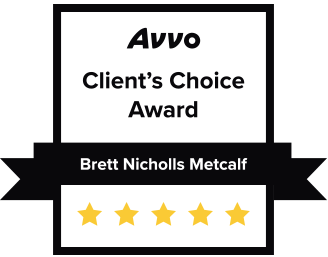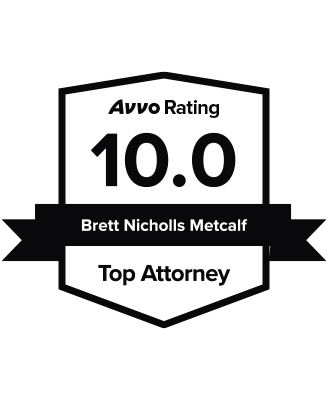Murder is the most serious homicide charge. This offense happens when someone intentionally takes the life of another. Manslaughter is a less serious charge than murder. Prosecutors can secure a conviction for manslaughter with nothing more than culpable negligence.
This low standard allows prosecutors to pursue charges of manslaughter for all kinds of unintentional deaths. A manslaughter defense attorney from Metcalf Falls, Criminal Defense Attorneys, P.A., can present your defenses against manslaughter charges to fight for a fair outcome in your case.
Contact us at 813-258-4800 to schedule an initial consultation.
What Is Manslaughter?
Manslaughter is a catch-all charge. It covers homicides that do not fit the definition of murder but are serious enough to qualify as more than an unfortunate accident. The common law definition of manslaughter includes killings that occurred in the heat of passion or due to culpable negligence.
Manslaughter vs. Murder
Murder requires the specific intent to cause death or grievous injury or commit a felony. Intent refers to the thoughts going through the accused person’s mind when the killing happened. Thus, prosecutors need facts that show the killing was planned or premeditated.
Manslaughter is a killing without legal justification that is not the product of premeditation or a felony. Since the defendant lacked the intent associated with murder, the law treats manslaughter as a less serious offense.
Florida Manslaughter Charges
The U.S. Constitution disposes of common law crimes and requires states to provide written definitions of criminal offenses. Florida’s manslaughter definition appears in Florida Statutes § 782.07. Florida has a separate statute defining the state’s vehicular homicide laws.
Voluntary Manslaughter
Florida’s statute does not use the term “voluntary manslaughter.” Instead, this term comes from the common law to distinguish two types of manslaughter.
Voluntary manslaughter happens when the accused intentionally causes death but without the planning or premeditation needed to support murder charges. A typical situation involving voluntary manslaughter happens when the accused overreacts to a provocation such that the killing was intentional and unjustified but not planned.
Attempted Voluntary Manslaughter
Attempted voluntary manslaughter happens when someone does something that could have resulted in manslaughter but either fails or is interrupted before the death can occur.
To prove an attempted voluntary manslaughter, prosecutors must show that the accused took a step that could have resulted in manslaughter. In other words, they must prove the victim would have died if the accused person’s act had succeeded.
Involuntary Manslaughter
Involuntary manslaughter happens when the accused causes someone’s death while acting with culpable negligence. This term means the accused person knew or should have known their actions could cause death, and they disregarded the accused victim’s safety.
An example of involuntary manslaughter happens when a drug dealer supplies heroin to the victim, resulting in the victim’s overdose death. The supplier did not intend for the victim to die. But they also supplied the drugs, ignoring a significant risk of overdose.
Vehicular Manslaughter
Vehicular manslaughter occurs when someone dies as a result of reckless driving. Reckless driving happens when someone drives with such a lack of care that death or great bodily harm is likely.
An example of vehicular manslaughter happens when a driver hits and kills a pedestrian while eluding the police. The driver did not intend to kill the pedestrian, but they also disregarded the substantial risk of death.
Penalties for Manslaughter in Florida
The penalty for manslaughter depends on several factors, including the victim’s identity and the manner of the death. Manslaughter is a first-degree felony when the victim:
- Is an elderly person, disabled adult, or a child under the age of 18
- Is a police officer, firefighter, EMT, or paramedic performing their duties
- Was killed in a hit-and-run collision
A first-degree felony is punished with up to 30 years in prison and a fine of up to $10,000. This level of offense also counts toward Florida’s habitual offender, or three-strikes, law.
All other types of manslaughter are second-degree felonies. These offenses are punished with up to 15 years in prison and a fine of up to $10,000.
Collateral Consequences of a Conviction
A felony conviction for violent crimes like manslaughter could preclude you from certain government jobs, such as teaching or law enforcement. While private employers can hire convicted felons, many will not. Convicted felons lose their right to own a gun. Many landlords conduct criminal background checks and refuse to rent to convicted felons.
Possible Defenses Against Manslaughter
Someone charged with manslaughter has several defenses. First, prosecutors bear the burden of proof. If they fail to present evidence of every element of a crime beyond a reasonable doubt, a jury cannot convict.
Second, Florida has a law specifically excluding certain types of homicide from prosecution. Under Florida excusable homicide laws, manslaughter excludes accidental deaths that occur:
- During a lawful act performed with lawful means, lawful intent, and ordinary care
- In the heat of passion and in response to provocation
- In sudden combat, without a dangerous weapon and not in a cruel manner
Third, you and your lawyer can argue self-defense. Florida self-defense laws permit deadly force when:
- Resisting any felony, including murder
- Defending a dwelling from an attempted felony
When you present a justification or defense, you and your lawyer bear the burden of persuasion. In other words, you must present evidence of each element.
Contact a Manslaughter Defense Lawyer in Tampa Today
A manslaughter conviction can leave a defendant facing over a decade in prison and a lifetime of legal disabilities.
Contact us at 813-258-4800 to schedule an initial consultation.






